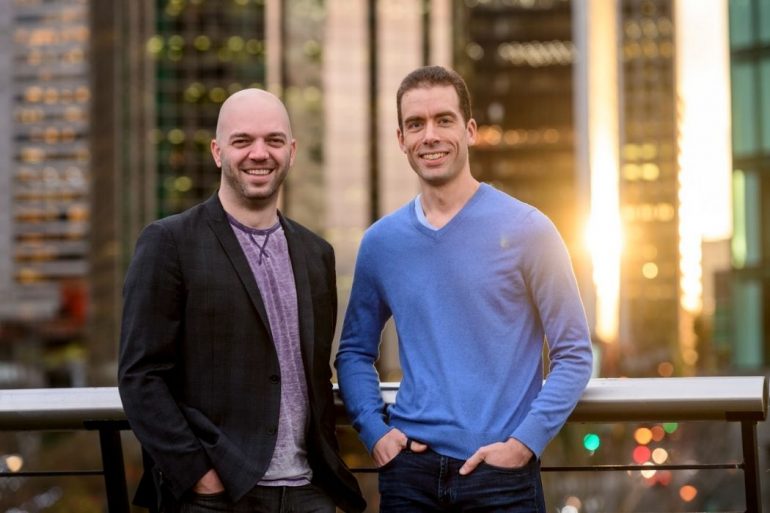After years of working at progressively smaller companies in progressively more senior roles, Damir Hot started his own startup.
Hot used his career to learn the ropes of entrepreneurship—everything from engineering to go-to-market strategies—before leaving the nest. But he didn’t go it alone. On the #CIBCInnovationEconomy podcast, Hot explained why he thinks starting with a co-founder is much better than launching a business by yourself.
Hot worked for a few different organizations prior to entrepreneurship, but admitted he was “not a very good employee” through the early part of his career. Instead of thinking about climbing the corporate ladder, he was thinking about when he could get out and start his own business. Hot said working toward being an entrepreneur was always his “ultimate goal” and that he slowly got there by moving to smaller companies in more senior roles.
“I still don’t know how founders do it alone alone.”
“Every time I left the company, I joined the next one in an earlier and a more senior role, and less cash comp and more stock,” said Hot. “And then eventually there was nowhere to go but start from ground zero, and so I found an amazing co-founder and then off we went.”
The result was Canalyst, an investment research platform that helps pension and investment managers make data-driven investment decisions. Since its founding in 2015, the company has steadily grown and raised capital: first a 2016 seed round through to a $70 million Series C in January 2022.
Looking back on the experience of founding a company, Hot expressed his confusion and awe for founders who go it alone.
“I still don’t know how founders do it alone alone,” said Hot. “I think having a co-founder has been incredible for the record, and I highly recommend that as a strategy, even though it is the single most dilutive event you’re ever going to undertake.”
For Hot, the benefits of a co-founder are multi-fold:
First, it’s someone to help you get through the challenging moments in ways no other relationship, business or personal, could understand.
Second, it’s someone to celebrate with during those moments that seem insignificant to the outside world but mean a lot to someone who knows the full context of your experience in the company.
“There are frankly moments that are uniquely exciting to somebody who has the full context of what you’ve been doing the last two or three years and can appreciate something that, to even to your family or to your close friends or even your staff, can seem like it’s not a big deal,” said Hot.
And third, it’s about complementary skill sets while aligning on a core approach to business building. For Hot and his co-founder, their complementary skill sets were also buoyed by a shared hatred of losing.
“We’re relatively similar in how we just don’t want to lose,” said Hot. “He doesn’t want to lose for his own purposes. I don’t want to lose for mine.”
When it comes to finding a talented partner or early employee, Hot talks about filling gaps. To find the right person to fill the gap, he recommends finding a “capable generalist” early. Eventually, this flips as the company grows and you need specialists. But in the early days, you need people who can do a little bit of a lot of things.
“On day zero, you don’t have the capacity to have 30 people who are all highly specialized,” said Hot. “You have to get two or three or four or five generalists. And then at some point, the breadth of skill-set that you need in total in aggregate in the business kind of stops growing as quickly as your business is growing. At that point, you can add depth in each piece of the skill-set.”
Feature image courtesy Canalyst.


